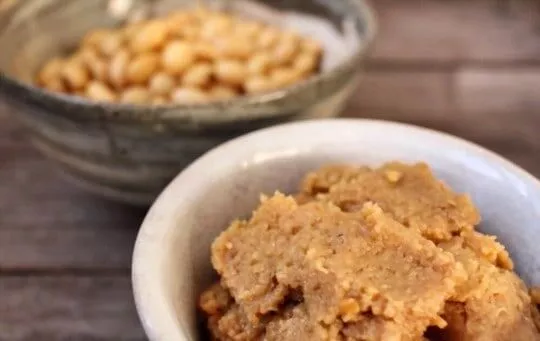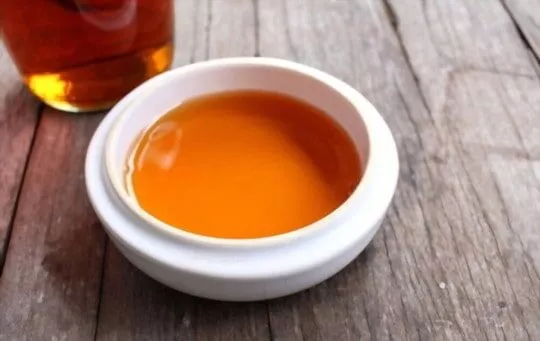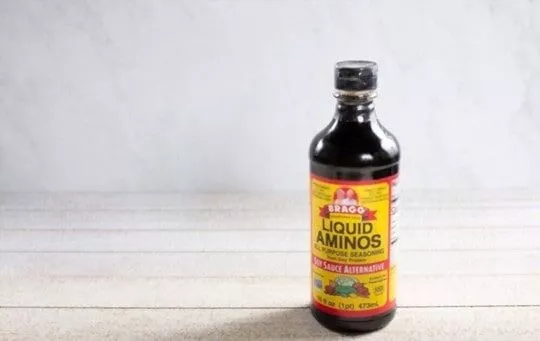Shoyu, also known as soy sauce, is an essential condiment in Asian cuisine and has been used for centuries in many regions around the world.
Made from fermented soya beans, it provides a salty, umami flavor to dishes, making it one of the most popular condiments in the culinary world.
Unfortunately, shoyu may contain gluten or MSG which can cause adverse health effects for some people.
To substitute shoyu without sacrificing its strong flavor profile, here are some excellent alternatives: tamari sauce, miso paste, Worcestershire sauce, mushroom-based sauces, and fish sauce.
These options provide a delicious and healthy alternative to shoyu that can be used in multiple recipes.
What Is Shoyu?

Shoyu is a dark-colored condiment made from fermented soya beans and wheat. It has a salty and savory taste with a subtle hint of sweetness due to the addition of sugar during production.
Aside from imparting umami flavor to dishes, it is also rich in minerals such as potassium, magnesium and iron.
As an essential ingredient in Asian cooking cultures, shoyu often finds itself incorporated into various dishes such as sushi rice or hot pot soups.
It’s important to note that some brands will add MSG (monosodium glutamate) or use wheat flour containing gluten during production; therefore it’s best to check labels carefully before purchasing if you have any dietary restrictions.
The 8 Best Substitutes For Shoyu
If you’re looking for alternatives to shoyu without compromising its incredible flavor profile, here are eight great substitutes that can help you create unforgettable meals:
1 – Tamari Sauce
Tamari sauce is a popular alternative to shoyu due to its ability to provide an umami-rich taste without containing wheat or other additives like MSG.
This type of soybean-based condiment originates from Japan where it’s made using natural ingredients such as brewed soybeans and salt.
Tamari contains less sodium than regular shoyu while providing similar depth of flavor; thus making it suitable for those who need low-sodium diets.
Additionally, tamari is incredibly versatile—it pairs well with many different types of dishes ranging from sushi rolls to ramen noodles!
2 – Miso Paste

Miso paste is another traditional Japanese seasoning made by fermenting cooked soybeans with salt and koji (a type of mold).
Unlike regular shoyu which tends to be thin and runny when poured out of the bottle, miso paste is thicker with a chunky consistency that requires mixing before serving or using as part of a recipe (such as miso soup).
This makes miso paste more suited for flavoring rather than coating dishes with liquid sauces like regular shoyu does; however the end result still packs full flavor without adding additional fat or calories!
3 – Worcestershire Sauce

This British condiment is probably most famous for being added into Caesar salad dressings but it also serves as an excellent substitute for shoyu in many recipes too!
Traditionally made from vinegar, molasses/treacle syrup, anchovies/fish extract, mustard powder/onions/shallots/garlic cloves and spices—Worcestershire sauce offers an intriguing blend of sweet yet savory notes perfect for topping off grilled meats or mixing into marinades giving them extra oomph!
Just make sure not to overdo it because pungent aftertastes will take over if too much is used!
4 – Mushroom-Based Sauces
For those looking for plant-based alternatives free from animal products like anchovies or fish extract found in Worcestershire sauce—mushroom-based sauces can be just what you’re after!
They offer robust flavors that complement vegetables wonderfully while providing depth without overpowering them; additionally, they come packed full of antioxidants including selenium which helps reduce inflammation inside our bodies too!
Try mixing these sauces into risottos or even into vegan “meatloaf” recipes for added umami nutrients!
5 – Fish Sauce

Originally from Southeast Asia this condiment consists mainly of fish extract combined with salt which gives off intense aromas when heated up—causing some people to wrinkle their noses at first whiff but once these smells dissipate upon cooking—the dish can turn out very tasty indeed!
Not only does this form of seasoning provide strong flavors without adding any fat but also vitamins A & B12 making it beneficial health-wise too (just be sure not to check labels before buying if allergies are present)!
Plus this spread goes well with almost anything savory so don’t be afraid to experiment away!
6 – Coconut Aminos

Coconut aminos is a soy-free and gluten-free alternative to shoyu that is made from the sap of coconut trees.
It has a sweet and salty flavor that is similar to shoyu and can be used in various recipes like stir-fries, marinades, and salad dressings. It is also low in sodium, making it a healthy option for those on a low-sodium diet.
7 – Balsamic Vinegar

Balsamic vinegar is a dark, syrupy vinegar that provides a sweet and tangy flavor to dishes. It can be used as a flavor enhancer in marinades, dressings, and sauces.
Balsamic vinegar is also low in sodium and calories, making it a healthy option for those watching their weight or sodium intake.
8 – Liquid Aminos

Liquid aminos is a soy-based seasoning that is similar to tamari sauce but without the wheat. It is made from non-GMO soybeans, water, and salt, and provides a rich and savory flavor to dishes.
Liquid aminos can be used in stir-fries, marinades, and as a replacement for soy sauce in sushi rolls. It is also gluten-free and low in sodium, making it a healthier option for those with dietary restrictions.
Conclusion
In conclusion, there are numerous substitutes available on the market today that offer healthier yet still flavorful options when compared to traditional forms of Shōyu such as Tamari Sauce & Miso Paste plus plant-based substitutes like Mushroom Based Sauces & Fish Sauce all offering unique twists on classic cuisine we know & love whilst keeping us healthy & safe whatever our dietary needs may be – so why not give one these alternatives a try next time?
Jenny has always been passionate about cooking, and she uses her platform to share her joy of food with others. Her recipes are easy to follow, and she loves giving tips and tricks to help others create their own unique culinary creations.

